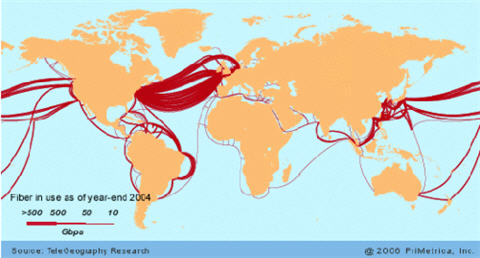Tech
How resilient are the Internet pipes?
The majority of Internet and international telephone traffic travels goes under the sea. When two submarine cables in the Mediterranean Sea were cut (most likely by ship anchors) on Wednesday, Internet connectivity in the Middle East and in parts of Asia cratered.

The majority of Internet and international telephone traffic travels goes under the sea. When two submarine cables in the Mediterranean Sea were cut (most likely by ship anchors) on Wednesday, Internet connectivity in the Middle East and in parts of Asia cratered.
According to reports, as much as 70 percent of Egypt’s Internet connectivity was down, and India's bandwidth has been severely impacted. U.S.The Internet has a great deal of resilience and redundancy, but there are still major arteries that can significantly bleed the Web of vital energy when cut. This incident should cause some rethinking in light of our increasing global dependency on the Internet, which will result in more investment in the pipes and potentially higher costs to use them.
